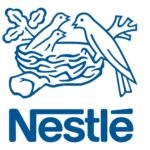Nestle Nigeria PLC has said 68 per cent of children below the age of five in Nigeria lack adequate amounts of iron in their bodies, resulting in stunted growth.
The Corporate Communications and Public Affairs manager of the firm, Victoria Uwadoka, cited this research figure on Monday when she led her team on a visit to the headquarters of Media Trust Limited, publishers of Daily Trust and other titles.
- Beware of COVID-19 third wave, PTF tells Nigerians
2 dead, 160 hospitalised as strange disease spreads in Kano
She said the visit was to partner with the media house to create awareness and promote the consumption of iron-rich food.
Uwadoka was also worried that the consumption of iron is low in the country despite the availability of local food that are rich in the nutrient.
She also said the iron deficiency was higher by 64 per cent in uneducated women than the 47 per cent in educated women.
This is due to lack of information on the local foods that have huge iron nutrients, she noted.
The spokesperson of Nestle highlighted the effects of iron deficiency to include poor growth and development among children, blood shortage for women during childbirth, among other conditions.
Uwadoka thus said among the various campaigns by the firm being the largest food and beverage manufacturer in Africa, the firm is launching the ‘Live Strong with Iron’ campaign by April on the World Health Day, while targeting to reach 50 per cent of Nigeria’s population in three years.
“We have local food like crayfish, banana, soya, corn, palm kernel, beans, egusi, pumpkin, cashew nut, sweet potato, coconut, orange, pear, plantain, egg, carrot and watermelon, to mention a few, that are rich in iron that will be helpful for children and their mothers,” she said.
The acting Chief Executive Officer of Media Trust, Malam Nura Daura, commended the company for the initiative and said the gesture indicated that private sectors could help in solving some of the problems in the country.
The Editor-in-Chief of Media Trust, Malam Naziru Mika’il, also said the campaign “confirms that we eat good food, but we need to be aware of what we eat.”
The head of Human Resource Department of the organisation, Hajiya Hadiza Bala Ibrahim, said the rate of iron deficiency among teenage girls was alarming, thus the campaign should target girls within the range of 12 to 18 years of age to know how to prevent blood shortage.
Also speaking, the General Manager, Business and Strategy, Ahmed Shekarau, urged the firm to embrace the use of local languages, including Media Trust’s Aminiya, a Hausa newspaper, to further reach Nigerians in the rural areas.
The Managing Editor, Stella Iyaji, further urged the firm to create platforms that would enhance the affordability of its products for the masses.

 Join Daily Trust WhatsApp Community For Quick Access To News and Happenings Around You.
Join Daily Trust WhatsApp Community For Quick Access To News and Happenings Around You.


